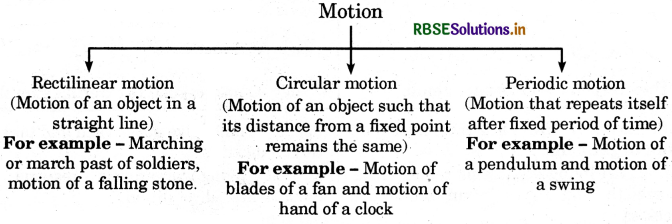RBSE Class 6 Science Notes Chapter 10 Motion and Measurement of Distances
These comprehensive RBSE Class 6 Science Notes Chapter 10 Motion and Measurement of Distances and their Surroundings will give a brief overview of all the concepts.
RBSE Class 6 Science Chapter 10 Notes Motion and Measurement of Distances
→ Invention of the wheel made a great change in modes of transport.
→ The invention of steam led to the development of new means of transport.
→ In ancient times„people used length of a foot, the width of a finger, the distance of a step as units of measurement. This caused confusion and a need to develop a uniform system of measurement arose.
→ The system of units naw used is known as the International System of units (S.I. units).
→ The SI unit of length is metre.


→ Each metre (m) is divided into 100 equal divisions, called centimetre (cm). Each centimetre has 10 equal divisions, called millimetre (mm). Thus,
- 1 m = 100 cm
- 1 cm = 10 mm
→ For measuring large distances, we use the unit kilometre (km).
1 km = 1000 m
→ Change in the position of an object with time is called motion.
→ Types of motion :

